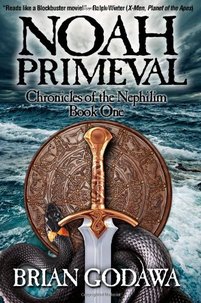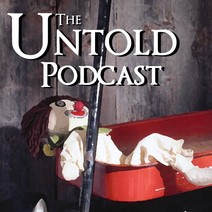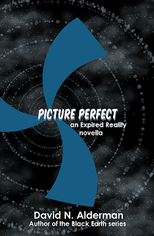
It features Sarah, her father-in-law "Flamingo Jeff", two ukuleles and 100% awesomeness. You can watch it here and if you like what you hear (and I know you will because it is amazing) be sure to leave some great comments on the youtube page here.
Husband. Father. Pastor.
Storyteller. Reader. Comic Fan.
Slave of the Lord Jesus Christ.
 My good friend, Sarah Pfeffer (wife of the amazing Max) has just posted a wonderful little music video of her song "Walking With You"! It features Sarah, her father-in-law "Flamingo Jeff", two ukuleles and 100% awesomeness. You can watch it here and if you like what you hear (and I know you will because it is amazing) be sure to leave some great comments on the youtube page here.
4 Comments
 Doesn't this chunky volume just look fun?! Summary: A trilogy of loosely intertwined stories explores the lives of some of the children, men and women of the farming community of Essex County, Canada in this graphic novel. Review: Jeff Lemire is quickly becoming one of my favorite authors. I first came across him via the DC Comics series Animal Man and Justice League Dark. I will have to review his excellent graphic novel Underwater Welder later, but for now we’ll look at his earlier work Essex County. Unlike his writing for DC Comics, Lemire’s personal works are drawn and written by himself. And rather than focusing on superheroes and end of the world scenarios, Essex County is a slice of life in a rural community that spans several generations. His artwork is simple, but emotive. The stories are moving, often causing tears to well up in my eyes, but avoid sentimentality in exchange for realism. The stories he tells are real stories about people who make mistakes, become vulgar when backed into a corner, and ultimately move through life with a mixture of joys and regrets. And this might sound bizarre, but I enjoyed the smell of the black ink on the pages during this read. It’s very distinct and an essential part of the reading experience. Essex County is a very realistic story. It is a beautiful story. Rating: 5/5 (I loved it) Find it here on Amazon.  Yesterday after church I told Jesus “no.” Let me back up. Yesterday was one of those rough Sunday mornings for me. I wasn’t overly thrilled with my sermon. And afterward, despite hours and hours of prep, I could objectively say it was a ‘C’ sermon. Not awful. Just average. My wife and I had to leave church shortly after services concluded (which pains me because I like spending as much time with my church family as possible) because the fetching Mrs. Norman had to go to job training as an intervention teacher. While she was there I did some errands, went back home to drop off groceries and turned right back around to go pick her up. As I sat in the school parking lot (way too early for the pick up) I saw an older man laboriously shoveling out his driveway. I didn’t give it much thought (plenty of people were out shoveling) and fiddled around with my phone wondering why I hadn’t brought a book to read. I leaned back in the chair and closed my eyes. I was exhausted. I had spent most of Friday doing some maintenance on the church building. I spend a number of hours helping a church member move on Saturday. And preaching is completely and utterly draining. I was done and wondering why I told my wife I would pick her up. All I wanted to do was sleep. Then God spoke to me through his still, small voice, Go help that man. “I’m exhausted.” I said in the quiet of my own thoughts. “And how do I even know that you’re really telling me to go help him?” Go help him. The still voice said again. “No, Lord.” I said. Can you really tell your Lord, no? The voice said again (knowing full-well that my theological training would instantly understand “lord” to mean “master” and one to whom another submits to and obeys.) “Yes.” I actually said out loud. Silence. I sat in the car. The still voice stopped. “Fine.” I said out loud again to my master. I walked up to this older gentleman, who was out of breath, and I asked him if I could help him shovel. He said no. He was almost ready to go inside for a break. Seriously, Lord? (Those italic thoughts were definitely mine . . . not God’s.) I was unsure what to do, and the man started talking. So I listened. He talked about the snow plow trucks, World War II history, his adoption, the cost of living, the cost of food, gas prices, weather, global warming, global cooling and a few other things I probably missed. When I found a gap in the conversation, I picked up a shovel and started clearing his sidewalk. My muscles ached from all the heavy-lifting I’d done on Saturday. But I moved the snow, and my new friend kept talking, but now more about himself, his life and his struggles. After about eight minutes of shoveling he walked up, grabbed my shovel and said, “I’m done for now. Do you want to come inside for a cup of coffee?” I don’t think a stranger has ever invited me into their home for coffee before. That sort of thing has died from our culture. So, a product of the culture, I thought a brief prayer Lord, I’m going in, I hope you didn’t bring me here to get murdered. I was inside his house for about fifteen minutes. Our conversation dipped into some deeper areas, but was mostly superficial. Then my wife called and my new friend walked me out. When we shook hands he didn’t say “thanks for the help” or “thanks for shoveling the walkway.” No. Instead, he said something very bizarre. He said, “Thank you for the conversation.” Conversation. I wasn’t there to help him shovel at all. I was called there for something more basic, more fundamental: Human Interaction. Here was someone who needed something so much so that he thanked me for it. And so, the Scripture from my mediocre sermon came back to convict me: “All have turned away; all alike have become corrupt. There is no one who does good, not even one” not the believers, not the unbelievers, not the church grandmas, not even the pastors (Psalm 14). We . . . I need to call out to Jesus wherever I go because the depths of my selfishness knows no end apart from Him.  Mystery Science Theater is my second favorite show of all time. One of their classic episodes featured the abysmal and creepy "horror" film Manos: The Hands of Fate. So, of course, I purchased the 8-bit video game version of the movie the second it became available on the android platform! (Also available for iOS and PC) It's a fun little throw back to the days of the NES. There's nothing earth-shattering here, but for any "fans" of the movie, this is a fun little game to check out. www.manosthehandsoffate.com/  I was mentioned a couple of times on two different podcasts this past week. The Strangers and Aliens podcast (which interviewed me a few months back) digitized some comments I made about Star Trek vs. Star Wars on their facebook wall. My comments were as follows: Star Trek. It has more content to enjoy (at least in the "moving picture" sense). It is older. It has more characters for people to identify with. It has more positive male and female heroes. It has more realistic heroes. I grew up watching it as a kid and it challenged, engaged and informed my intellectual, historical, philosophical and theoretical knowledge base. Star Wars just engaged my desire to run around and hit my brothers with sticks in the back yard. You can listen to that episode here.
I was also mentioned twice in the Sci-Fi Christian's podcast twice as my good friend Max referenced my work in The Untold Podcast and referenced me sharing with him the excellent comics Swamp Thing and Animal Man. You can listen to this episode here.  I have a number of axioms I live by. One of them is “You don’t know what you don’t know.” I’m not sure who I picked it up from, but I know I adopted it somewhere early in my seminary career. I honestly went into seminary thinking, other than Greek and Hebrew what can seminary possibly teach me? There was no arrogance in this thought. I had been doing ministry for six years by the time I started seminary. I had read through the entire Bible a couple of times. I had taught in a variety of churches and settings on a regular basis. What could seminary possibly teach me at this point in my ministry?! Wow, was I ever ignorant. Every single class in my first semester challenged my theology, my assumptions, and my personal conduct. I had no clue that my understanding was as deficient as it was. I didn’t know what I didn’t know. While seminary has given me a great foundation to work from, it has not given me all theological knowledge, but has set me in the right direction for discovering timeless truths. So, as I continue to pastor, to write, to preach, to teach and to build relationships I often find myself saying to others “you don’t know what you don’t know.” This axiom keeps me humble. It also keeps me asking questions instead of always pretending to have the answers. (And because "you don't know what you don't know" . . . do you know how good the latest episode of the Untold Podcast is? If not, go check out this month's story "Send In" here.)
Preaching Idea: "Embrace the Adventure!" Philippians 2:19-30
(From the sermon The Sort of Leader God Uses) © 2013 Nathan James Norman Meme: "Embrace" © 2013 Juli Woodgerd Feel free to pin them, post them and share them as much as you want. Just don’t change, sell or adapt them.  Summary: As the sons of man populate the earth, the fallen sons of God masquerade as gods themselves. These gods have led the majority of humanity into the depths of sin and perversion and have also begun breeding a race of giants, the Nephilim, as a cross between man and fallen angel. As the tribes of men who follow the one true God, Elohim, diminish it seems all hope rests in God’s chosen seed, Noah, and the mysterious box he has instructed him to build. Review: I really enjoyed this novel. It was fast-paced, action packed and featured a number of relatable characters and situations. I have to take a second to note that this book is a biblical fantasy, that is, Brian Godawa took the general story of Noah, ancient Mesopotamia, the antediluvian world, and added elements of epic fantasy to tell the story. This is not historical fiction, but rather a speculative re-imagining of the story of Noah. Even with that said, with my pastoral background, I was very impressed with the level of scholarship within the story itself. I frequently found myself in the story, thinking I can’t believe he just accurately put in that detail about ancient myth in here! Noah Primeval isn’t a scholarly work, though. It is a fast-paced, heart-wrenching, action epic that weaves timeless, orthodox gnomic biblical truths into effective storytelling. Godawa is a master storyteller who is never preachy, but shows truth throughout his book in the thoughts and actions of his characters. The book is not without flaws. Godawa writes in a hybrid of third-person omniscient/third-person limited which is fascinating, but I found myself rereading paragraphs trying to find out whom the subject of the section was. His background as a screenwriter also showed as he used all CAPITALIZATION to express extreme and loud emotion. I also would have liked Godawa to make one of the giant nephilim (human/fallen angel hybrid) a character in the story, rather than just monstrous, unstoppable brutes. I would have also liked to see more of the building of the ark/box, more of an explanation of the gathering of the animals, and a more completed ending to Noah’s story rather than such a strong emphasis placed on setting up the sequels in the series. These issues are minor, though. The story is enjoyable, and visceral. The book also contains four rather extensive appendices dealing with the historical/biblical backgrounds for some of the features of the story (see comments after the review). The book deals with some more mature subject matter and so is only suitable for older teens. But for those interested in fantasy and biblical themes, this book will be an enjoyable challenge and adventure. Rating: 4.5/5 (I really liked it) Contest: The Spirit Blade Underground is hosting a contest to win a free copy of this book. Please go here for a chance to win Noah Primeval. (Act fast. Contest ends 2/20/13) Appendix Theology Brian Godawa devotes about one quarter of the book to his appendix which feature rudimentary information about some of the ideas in his book. I appreciated and enjoyed these sections. As an M. Div. pastor I want to offer some summary comments on these appendixes. Appendix A – The Sons of God I believe I am in agreement with Godawa in this section. His main point seems to be that God is not the only supernatural authority in the universe. While God is the only God, there are lesser authorities or gods whom scripture identifies as fallen angels or demons. Godawa, however, begins this section trying to define monotheism, but uses some imprecise technical language to do so and this doesn’t really get him to where he’s trying to go. Appendix B – The Nephilim Here, Godawa argues that the Nephilim referenced in Genesis 6 were the offspring of fallen angels and human women. This is a valid argument from the text. He also argues that these are giants – which the text suggests (especially in Numbers 13:33), but the word Nephilim conveys the idea of “fallen ones” in the Hebrew morphology, not giants as Godawa concludes. [Ammendment: After a conversation with the author on the meaning of "nephilim" here is what I concluded to him from this article on his website - " Brian - Shame on you for confusing the situation with the facts! I've pulled out my Hebrew Bible, Brown, Driver and Briggs Lexicon, and my LXX of the OT and found some stuff out. First, I was shocked to see "gigantes" in the Greek version of the text. Furthermore, being only a reader of biblical Hebrew (and not a scholar by any stretch of the imagination), I was once again surprised to see the BDB lexicon define the word as "giants". Finally, I went back and read your comments and realize that I had rejected them because I misunderstood you. I thought you were arguing that the Aramaic informed the understanding of giant (but this could not be the case since Aramaic did not appear until around 1000BCE). Upon a re-read I now understand that you, and Heiser are saying that us reading "fallen ones" into the text comes from us back-reading an Aramaic word into a Hebrew word. I repent and I'm amending my review. Thank you!"] He ends this section suggesting that the giants are connect to the Nephilim and these giants are a part of the seed of the Serpent that would be at enmity between the woman’s seed (Gen. 3:15). From here, he only teases on that one would have to read the sequels to find out if this is the case. Clearly this is his view (at least for the stories) and while not explicitly stated here, my concern is that his conclusion in future writings will be something to the effect of “there was a God-mandated mission to kill all giants.” And while giants are not portrayed positively, there is no such mandate in scripture. Appendix C – Leviathan This was a very helpful entry. He takes the readers on a journey through the issues, and for the most part accurately describes the function of Leviathan – the beast of the deep – very well. Appendix D – Mesopotamian Cosmic Geography in the Bible Again, this is a very helpful section. And his viewpoint is a valid argument. However, I think he dismisses phenomenological cosmological arguments too readily. It is possible that the human authors of Scripture had one view of the world, while the undergirding of the Holy Spirit led them to write about cosmology is such a way as to lend itself to a semi-scientific reading. Regardless, Godawa rightly points out biblical cosmology as one of function, not of material purpose. Find it here on Amazon.  The fifth episode of the Untold Podcast "Send In" is now up and available for free download! I have decided to blog on my personal website with each release and give some additional background and behind the scene information not available anywhere else. This was a very important episode. This was the first episode that featured contemporary work from an author other than myself. This story "Send In" resulted from contacting Justin Lowmaster about using one of his other stories which appeared in a compilation book one of my own stories also appeared in. That other story (which I'm still planning on producing in May) led to this story, "Send In". My vision for the podcast is to draw in many voices and perspectives to challenge and inspire Christian imagination. A key component to this vision is to have contemporary voices contributing to this endeavor. (And heads-up . . . next month will feature a story from another published author!) I was also looking for a particular song to close out the story with (I won't reveal spoilers). That search led me to Joshua Popejoy. And when I contacted him, he was more than willing to not only let me use this song . . . but also gave me permission to use one of his brand new songs. Personally, I am going to be checking out a ton of Joshua Popejoy's work. It really is awesome. I also have to let you onto to a secret. My favorite line from the story isn't what I said it was in the podcast. I chose the line I did because it best complemented Joshua Popejoy's closing song. If you want to see my real favorite line, look at the comments section of this post after listening to the podcast. Click here to go to the Untold Podcast.  It's no secret that I'm a huge fan of independent speculative author David N. Alderman. His Black Earth series (several reviews appearing on this blog) is among my favorites. If you'd like to get a taste of this wonderful author's works, his novella Picture Perfect is now free through smashwords. Head over to David's blog for the details. |
Categories
All
Blog Roll
Breakpoint Archives
November 2023
|
||||||